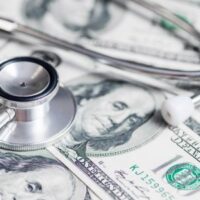Navigating Medical Debt in Bankruptcy

Medical debt can be overwhelming, often leading individuals to consider bankruptcy as a solution. At Wadhwani & Shanfeld, we understand the complexities involved in managing medical debt through bankruptcy. Consulting with a Los Angeles bankruptcy attorney can help provide a clear understanding of how medical debt is treated in bankruptcy proceedings.
The Burden of Medical Debt
With healthcare costs continually rising, medical debt has become a significant issue for many Americans, often through no fault of their own.
Unexpected medical expenses can quickly lead to financial instability, making bankruptcy a viable option for relief.
Medical Debt in Bankruptcy
Like credit card debt, medical debt is typically classified as unsecured debt in bankruptcy proceedings. This classification impacts how the debt is treated under different bankruptcy chapters.
Chapter 7 Bankruptcy and Medical Debt
Chapter 7 bankruptcy, known for its debt liquidation approach, can lead to the discharge of unsecured debts, including medical bills.
To qualify for Chapter 7, you must pass the means test, which assesses your income and financial ability to pay off debts.
In most Chapter 7 cases, medical debts can be fully discharged, relieving you of the obligation to pay them.
Chapter 13 Bankruptcy and Medical Debt
Chapter 13 reorganization involves creating a repayment plan to pay off debts over a period of 3-5 years.
In Chapter 13, medical debt is treated as non-priority unsecured debt. This means it is often paid after priority and secured debts.
Your repayment plan may include partial repayment of medical debts, depending on your disposable income and total debt amount.
After completing the Chapter 13 repayment plan, most remaining unsecured debts, including medical debts, are typically discharged.
Special Considerations
There is no cap on the amount of medical debt that can be discharged in bankruptcy, making it a feasible option for those with substantial medical bills.
While bankruptcy can affect your credit score, the impact may be less significant compared to the ongoing strain of unresolved medical debt.
Preparing for Bankruptcy with Medical Debt
Gather all medical bills, insurance statements, and related documentation. Accurate records are essential for a smooth bankruptcy process.
If possible, avoid incurring new medical debts before filing for bankruptcy to prevent complications.
An experienced bankruptcy attorney can offer personalized advice and guide you through the process, considering your specific medical debt situation.
Life After Bankruptcy
Discharging medical debt through bankruptcy can provide a fresh start, freeing you from overwhelming financial burdens.
Post-bankruptcy, focus on rebuilding your credit through responsible financial practices, such as secured credit cards and budget management.
Develop a long-term financial plan to maintain financial stability and prepare for potential future medical expenses.
Contact Wadhwani & Shanfeld
Medical debt can be a significant burden, but bankruptcy offers a path to relief and a new financial beginning. Whether through Chapter 7 or Chapter 13, understanding how your medical debt will be treated is crucial for making informed decisions. At Wadhwani & Shanfeld, we are dedicated to guiding you through the complexities of bankruptcy and helping you achieve a debt-free future. Contact us for expert legal advice tailored to your unique financial situation.
Sources:
forbes.com/advisor/debt-relief/medical-bankruptcies/#:~:text=Medical%20bills%20are%20generally%20classified,t%20have%20to%20be%20repaid.
debt.org/bankruptcy/medical
